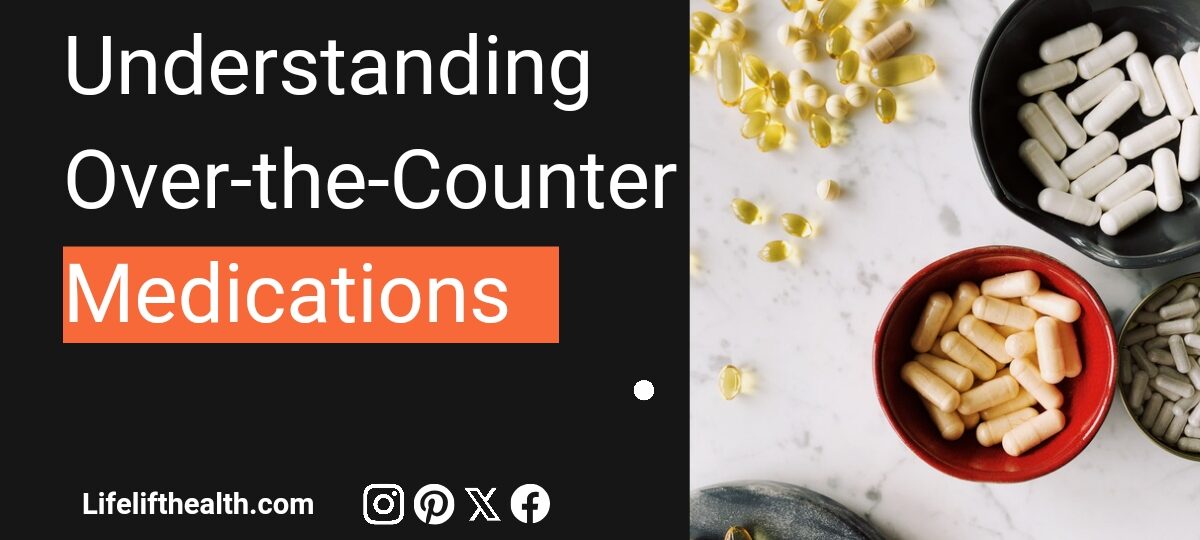Explore OTC Medications: benefits, risks, and regulation. Learn how they differ from prescription drugs and get tips for safe use.
Prologue to Over-the-Counter OTC Medications
Over-the-counter OTC medications allude to drugs that can be bought without a prescription from a healthcare proficient. These drugs assume a fundamental part in overseeing different normal health conditions and are promptly accessible in drug stores, supermarkets, and online stages. They give people available and helpful answers for ease side effects and further develop their prosperity.
Kinds of Over-the-Counter OTC Medications
Pain relievers: OTC pain relievers, for example, ibuprofen and acetaminophen are generally used to ease minor a throbbing painfulness, including migraines, muscle hurts, and feminine issues.
Allergy medicines: These medications assist with freeing side effects from sensitivities, including sniffling, tingling, and runny nose, by hindering the activity of receptor in the body.
Hack and cold drugs: OTC hack and cold medications give alleviation from side effects like hack, clog, and sore throat, assisting people with overseeing respiratory diseases.
Stomach settling agents: Acid neutralizers kill stomach corrosive and give help from acid reflux, heartburn, and indigestion.
Diuretics: OTC purgatives are utilized to alleviate stoppage by advancing defecations and facilitating distress.
Advantages of OTC Medications
OTC medications offer a few advantages to customers:
Openness: OTC drugs are promptly accessible without the requirement for a prescription, permitting people to rapidly get to help for minor health issues.
Cost-viability: Contrasted with prescription medications, OTC drugs are much of the time more reasonable, making them open to a more extensive scope of individuals.
Comfort: OTC medications can be bought at drug stores, stores, and online retailers, giving accommodation to people looking for guaranteed alleviation.
Dangers and Precautionary measures
While OTC medications are by and large safe when utilized as coordinated, they can present dangers whenever abused or taken improperly. Normal dangers include:
Side effects: OTC medications might cause side effects like sluggishness, unsteadiness, or gastrointestinal uneasiness.
Drug connections: Certain OTC drugs can interface with prescription medications or other enhancements, prompting unfriendly effects or decreased adequacy.
Abuse and misuse: Overuse or abuse of OTC medications can bring about serious health results, including liver harm, kidney issues, or enslavement.
Rules for Safe Use
To guarantee the protected and viable utilization of OTC medications, it is fundamental to:
Understand names: painstakingly read and adhere to the guidelines on the medicine mark, including measurements proposals and admonitions.
Measurement guidelines: Accept the suggested portion as coordinated by the maker or healthcare proficient, and try not to surpass the suggested dose.
Conference with healthcare experts: Look for guidance from a drug specialist or healthcare supplier on the off chance that you have inquiries concerning the suitable utilization of OTC medications, particularly assuming that you have basic health conditions or are taking other medications.
Normally Utilized OTC Medications
A few normally utilized OTC medications include:
Ibuprofen: Utilized for pain alleviation and diminishing aggravation.
Diphenhydramine: An allergy med used to alleviate sensitivity side effects and help rest.
Dextromethorphan: Found in hack syrups, it smothers hacking.
Calcium carbonate: A stomach settling agent used to kill stomach corrosive and assuage acid reflux.
Psyllium: A purgative used to treat obstruction and advance standard solid discharges.
OTC Medications for Explicit Circumstances
Migraines: OTC pain relievers, for example, acetaminophen or anti-inflamatory medicine can assist with reducing cerebral pain side effects.
Sensitivities: Allergy meds like loratadine or cetirizine can give help from sensitivity side effects like wheezing and tingling.
Stomach related issues: Acid neutralizers like ranitidine or famotidine can assist with letting side effects free from heartburn or indigestion.
OTC Medications versus Prescription Drugs
While considering over-the-counter (OTC) medications versus prescription drugs, understanding their differences is vital. OTC medications, effectively open without a prescription, offer fast help for minor health issues like migraines or sensitivities. They’re practical and managed for security. Be that as it may, they may not do the trick for serious circumstances. Prescription drugs, got through a specialist’s prescription, address more mind boggling health concerns yet require proficient oversight. While they’re strong and custom-made to explicit necessities, they’re less available and frequently pricier. At last, the decision among OTC and prescription drugs relies upon the seriousness of the condition and individual health needs.
Administrative Oversight
Administrative oversight guarantees the wellbeing and viability of medications. On account of over-the-counter (OTC) medications, administrative bodies like the Food and Medication Organization (FDA) in the US screen their assembling, naming, and advertising. These offices set norms to protect buyers from hurtful items, guaranteeing that OTC medications meet quality control measures. By managing the business, they assist with keeping up with public confidence in the wellbeing and adequacy of OTC medications, adding to overall healthcare quality.
Ways to buy OTC Medications
While buying OTC medications, consider the accompanying tips:
Confided in brands: Pick legitimate brands known for their quality and dependability.
Expiry dates: Check the termination date on the drug bundling and try not to utilize lapsed items.
Capacity conditions: Store OTC medications as per the producer’s guidelines to keep up with their power and viability.
The Eventual fate of OTC Medications
Headways in innovation and buyer inclinations are forming the eventual fate of OTC medications. Developments, for example, telemedicine, customized medication, and advanced health stages are supposed to upgrade availability and work on the conveyance of OTC healthcare administrations.
Conclusion
Over-the-counter medications assume a vital part in giving open and helpful answers for overseeing normal health conditions. While OTC drugs offer various advantages, it is crucial for use them capably and observe wellbeing rules to limit gambles and expand their viability.
FAQS:
Are OTC medications ok for everybody?
While OTC medications are by and large safe for the vast majority when utilized as coordinated, certain people, like pregnant ladies, kids, and those with explicit ailments, ought to talk with a healthcare proficient prior to utilizing OTC medications.
Could I at any point take various OTC medications simultaneously?
It’s fundamental for be mindful while consolidating OTC medications, as some might communicate with one another or with prescription drugs. Continuously read marks cautiously and talk with a drug specialist or healthcare supplier in the event that you’re uncertain about possible collaborations.
How would it be advisable for me to respond assuming that I experience side effects from an OTC prescription?
On the off chance that you experience unfavorable responses or side effects subsequent to taking an OTC prescription, quit utilizing it right away and look for clinical consideration if vital. Report any side effects to your healthcare supplier or the FDA’s MedWatch program.
How long might I at any point securely utilize OTC medications?
Follow the suggested measurement and length of purpose demonstrated on the drug name. Stay away from delayed utilization of OTC medications without talking with a healthcare proficient, as this might prompt reliance or other health issues.
Are home grown supplements considered OTC medications?
While a few home grown supplements are available without a prescription, they are not directed by the FDA similarly as ordinary OTC medications. Practice wariness and examination the security and viability of home grown supplements before use.

